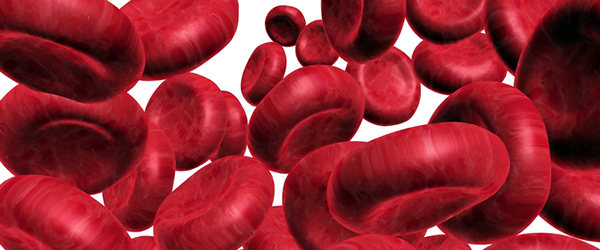
Menstrual Bleeding Disorders
Menstruation is the common part of women's lives. Every woman has to go through the monthly periods with less or no concern. Some may face the problem of heavy bleeding, some may face pain and some may have complaints of light bleeding. Having discomfort during menstruation is normal. Women experience mood swings, swelling, pain, tiredness at the time of periods. If you are having time periods with normal blood flow, you are safe. If you are facing abnormal bleeding at different flex-intervals, you are at risk. Contact to your nearest gynecologist to consult about the symptoms, causes, diagnosis, and treatments.
Menstrual disorder or menstrual irregularities refers to a stage when women face the irregular condition of bleeding due to physical, psychological or other factors.
Types of menstrual disorders
In a broader term, menstrual disorders have been divided into 4 types:
- Abnormal uterine bleeding or Menorrhagia
- Dysmenorrhea
- Amenorrhea
- Oligomenorrhea
- Amenorrhea: Is a stage when a girl does not experience bleeding in her life cycle. Amenorrhea has been divided into two parts:- Primary Amenorrhea when menstruation has no started at all and secondary Amenorrhea when menstruation starts at appropriate age but stops after a short period of time
- Oligomenorrhea: Is a stage when a woman or girl experience infrequent bleeding. This can be referred a situation when a woman has to wait for 35 days or more to have menstruation. The number of menstruation cycle may be 4-9 in a year. Dysmenorrhea - When a woman experiences painful menstruation affecting the pelvic and abdomen areas.
- Menorrhagia: It is also called heavy bleeding disorder. Although it is referred as the total loss of more than 80 milliliters blood , it is difficult to measure.
Here we will study the Heavy Uterine Bleeding disorder only as it is causing more pain, discomfort, and weakness. The diagnosis of heavy menstruation or Menorrhagia can be made if a woman is facing such symptoms like:-
- Unusual increase in menstrual blood loss
- If periods last for more than 7 days
- Frequent bleeding
- If you have to change the pads more often, say after every 4 hours or twice in night
- heavy blood clots more than 3 cm wide
- Iron deficiency or anemia
Causes of Uterine Heavy Bleeding or Menstrual Disorders:-
Some reasons may be unknown but researchers have highlighted the common causes of heavy bleeding which are as under:-
- Hormone Imbalance:- When endometrium (lining of the uterus) develops in excess and affect the balance between hormones estrogen & progesterone, may result in heavy menstrual bleeding. There is a number of causes such as PCOS, Obesity, Insulin resistance, thyroid problems.
- Ovary Dysfunction:- If Ovary is not ovulating or not realizing eggs, it may affect the hormone progesterone, which eventually leads to menorrhagia.
- Fibroids:- These are benign (noncancerous) tumors which may occur during childbearing years. It is referred as the growth of the muscle and connective tissue cells in the wall of the uterus. This is more common and approx 1 in 3 women may suffer from heavy menstrual bleeding.
- Endometrial Polyps:- Small benign growth in the lining of the uterus may cause heavy spotting or prolonged menstrual bleeding.
- Adenomyosis:- It is the stage of growth of endometrium into the wall of the uterus causing enlargement of the uterus. When glands from the endometrium become embedded in the uterine muscle, may often cause heavy and painful bleeding.
- Intrauterine device (IUD):- A Contraceptive non-hormonal intrauterine Device which is used for birth control.
- Pregnancy complications:- A miscarriage may lead to heavy but late bleeding. Low-lying placenta or placenta previa may also result in heavy bleeding.
- Endometrial hyperplasia:- Thickening of the lining of the uterus (endometrium) may lead to heavier bleeding.
- Cancer:- Uterine cancer and cervical cancer may cause excessive uterine bleeding, especially if you are postmenopausal or have had an abnormal Pap test in the past.
- Inherited bleeding disorders:- such as Von Willebrand's disease, in which an important blood-clotting factor is deficient, missed or impaired.
- Medications:- such as anti-inflammatory medications, hormonal medications such as estrogen and progestins, and anticoagulants such as warfarin (Coumadin, Jantoven) or enoxaparin (Lovenox).
- Other factors:- some other factors may also cause Heavy or abnormal menstrual bleeding such as:-
- Liver or Kidney Disease
- Thyroid Imbalance
- Blood Clotting Disorders
Diagnosis/ Tests of Uterine Heavy Bleeding or Menstrual Disorders:-
Before undergoing any test or examination, your doctor will likely to ask you about medical history and menstrual cycles, you may be asked to pen down the number of menstrual days, the flow of bleeding or number of napkins used. Then you may have to undergo physical examination with one or more tests as listed below:-
- Blood Tests:- It is done to evaluate the iron deficiency or anemia, thyroid disorders, hemoglobin levels or blood clotting abnormalities.
- Pap Test:- It is done to examine the cells from your cervix for any infection, inflammation or cancer. Vaginal examination is done to feel the tie of the uterus.
- Endometrial Biopsy:- Sample of internal uterus tissue is examined by the pathologist.
- Ultrasound:- Imaging method using sound waves to produce the images of uterus, ovaries, and pelvis to examine the endometrial hyperplasia or uterine cancer, fibroids, ovarian cysts and pelvic abnormalities.
- Sonohysterography:- A fluid is injected through the tube into your uterus by way of vagina an cervix. Doctor will look for the lining of uterus using ultrasound
- Hysteroscopy:- A thing lighted instrument is inserted into the vagina to have an inside picture of the uterus.
Treatments for menorrhagia or heavy uterine/ menstrual bleeding will be offered only after evaluating the medical conditions and possible causes.
Treatments for Uterine Heavy Bleeding or Menstrual Disorders:-
There are various surgical and nonsurgical treatments are available to stop the heavy uterine bleeding. Earlier, hysterectomy (removal of the uterus) was the only effective treatment but now medicine is also available to treat the menorrhagia.
Surgical Treatments for Heavy Menstrual Bleeding/ Heavy Periods include:
- Endometrial ablation:- In this process, Lining of the uterus is distracted or removed with the help of hysteroscope which is inserted into the cavity of the uterus through vagina or cervix. This is a daycare procedure which is performed with using simple anesthesia. Women may go home the same day.
- Myomectomy:- This is the most effective methods as it removes fibroids without harming uterus.
- Hysterectomy:- this process is performed in different 4 ways:
- Abdominal Hysterectomy:- removing uterus with the opening of abdomen
- Vaginal Hysterectomy:- removing uterus through the vagina
- Laparoscopically Assisted Vaginal hysterectomy:- removal of the uterus through the vagina with small cuts in the abdomen to assist the surgeon.
- Laparoscopic hysterectomy:- removal of the uterus through small cuts in the abdomen.
The use of surgical methods will depend on the situation and medical issues of the women only.
Medical treatments for Heavy Menstrual Bleeding/ Heavy Periods
Medications may often affect the first cycle with further improvement in subsequent menstrual cycles.
- Non-steroidal anti-inflammatory drugs (NSAIDs):- to reduce heavy bleeding and painful menstruation
- Oral Contraceptive pill:- reduces menstrual blood loss and pain
- Oral Progesterone (progestogen):- to reduce blood loss if it took for 21 days out of 28 with the prior consultation with the doctor.
- Tranexamic acid:- Nonhormonal therapy to affect the clotting mechanisms and to reduce blood loss.
- Danazol:- to reduce blood loss. It may also lead to stop menstruation.
- Progestogen intrauterine device:- It takes several months to bring effect.
- Iron supplements for anemia:- Anaemia can leads to pale skin, shortness of breath, tiredness and heart palpitations. Anaemia is usually treated with tablets containing iron.
Consulting with Nearby Gynaecologist in Gurgaon will help you to cure and control heavy menstrual bleeding. Females suffering from any menstrual disorders must visit and consult with the expert to have timely evaluation and treatments.


